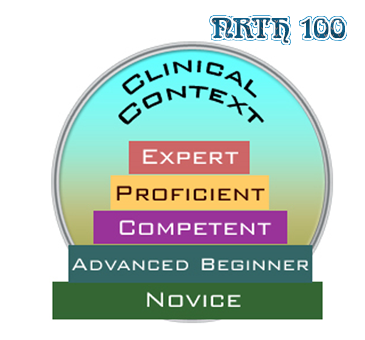
NRTH 100: Novice to Expert Theory
This 1 module (3 CE credit) course introduces nurses to the Novice to Expert Theory, (a construct theory first proposed by sibling researchers, Hubert and Stuart Dreyfus (1980) as the Dreyfus Model of Skill Acquisition, and later applied and modified to nursing by Patricia Benner in 1984) provides a very useful and important theory that clearly applies to nursing informatics. In fact, the Dreyfus brothers developed the model while working with artificial intelligence development and expert computer system programming.
This online course consists of a lesson, assigned readings and supportive media, and is evaluated by completing a multiple choice final examination.
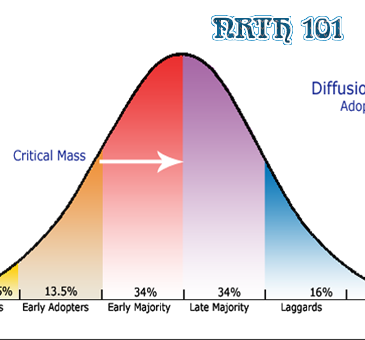
NRTH 101: Diffusion of Innovation Theory
This 1 module (3 CE credit) course introduces nurses to the Diffusion of Innovation Theory which is often regarded as a valuable change model for guiding technological innovation where the innovation itself is modified and presented in ways that meet the needs across all levels of adopters. It also stresses the importance of communication and peer networking within the adoption process.
In simple terms, the diffusion of innovation refers to the process that occurs as people adopt a new idea, product, practice, philosophy, and so on.
This online course consists of a lesson, assigned readings and supportive media, and is evaluated by completing a multiple choice final examination.
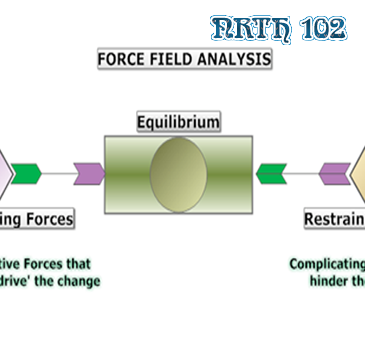
NRTH 102: Lewin's Change Theory
This 1 module (3 CE credit) course introduces nurses to Kurt Lewin's Change Management Theory, a time-tested, easily applied field theory that is often considered the epitome of change models, suitable for both personal and organizational change.
Kurt Lewin, (1890 - 1947) a Gestalt social psychologist, has been acknowledged as the "father of social change theories" since several contemporary models are at least loosely based on Lewin's work.
This online course consists of a lesson, assigned readings and supportive media, and is evaluated by completing a multiple choice final examination.
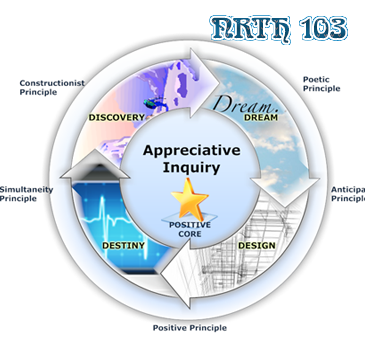
NRTH 103: Appreciative Inquiry Theory
This 1 module (3 CE credit) course introduces nurses to David Cooperrider's inspirational theory for organizational motivation and planning applied to informatics implementation.
Appreciative Inquiry (AI) is a capacity building approach that selectively seeks to locate, highlight, and illuminate the life-giving forces within an organization or community. AI seeks out the best of "what is" to help ignite the collective imagination of "what might be".
This online course consists of a lesson, assigned readings and supportive media, and is evaluated by completing a multiple choice final examination.
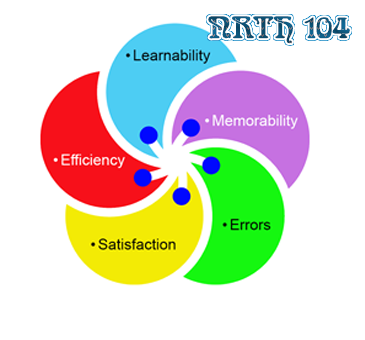
NRTH 104: Usability Theory
This 1 module (3 CE credit) course introduces nurses to Usability Theory which is an important topic in nursing informatics and nursing in general, since Usability is a key consideration when using technology and equipment in health care.
Usability is an important consideration when assessing the utility and user-friendliness of any piece of equipment including technology in the workplace or home.
This online course consists of a lesson, assigned reading and supportive media, and is evaluated by completing a multiple choice final examination.
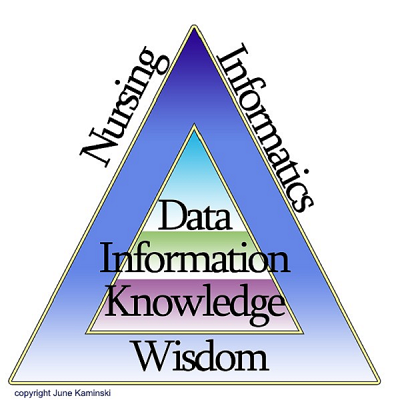
NRTH 105 - DIKW Theory
This 1 module (3 CE credit) course introduces nurses to the DIKW theory which outlines the importance of the four dimensions of data, information, knowledge, and wisdom in informatics.
The DIKW theory, short for Data – Information – Knowledge – Wisdom has evolved over the years across a variety of disciplines and is one of the most embraced in nursing informatics.
This online course consists of a lesson, assigned reading and supportive videos, and is evaluated by completing a 10-item final examination.

NRTH 106 - The McKinsey 7-S Framework
This 1 module (3 CE credit) course introduces nurses to the McKinsey 7-S Framework which outlines the importance of seven key elements in organizational planning and change: Shared Values, Structure, Strategy, Skill, System, Style, and Staff.
It is a model that is well suited to healthcare change, including information technology integration planning, since it guides users to apply a holistic approach to planning.
his online course consists of a lesson, assigned reading and supportive videos, and is evaluated by completing a 10-item final examination.
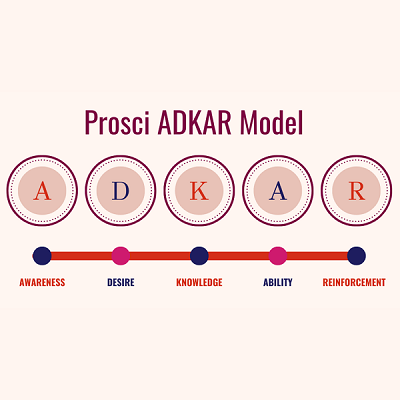
NRTH 107 - Prosci ADKAR Model
This 1 module (3 CE credit) course introduces nurses to the Prosci ADKAR Model which provides a guide for leaders to support individual change within organizations. The focus of this model is on the individual person, since all successful change occurs at the personal level where people involved in the change move through stages of acceptance and action.
ADKAR is an acronym for the five stages of the model which include Awareness, Desire, Knowledge, Ability and Reinforcement.
his online course consists of a lesson, assigned reading and supportive videos, and is evaluated by completing a 10-item final examination.

NRTH 108 - Socio-Technical Theory
This 1 module (3 CE credit) course introduces nurses to the Socio-Technical Theory which consists of three main dimensions or subsystems: social (people, culture, goals), technical (technology, infrastructure, processes), and the environmental dimension that enfolds the first two.
Ideally, thought and resources are applied to ensure all three subsystems interact together smoothly and harmoniously.
his online course consists of a lesson, assigned reading and supportive videos, and is evaluated by completing a 10-item final examination.















